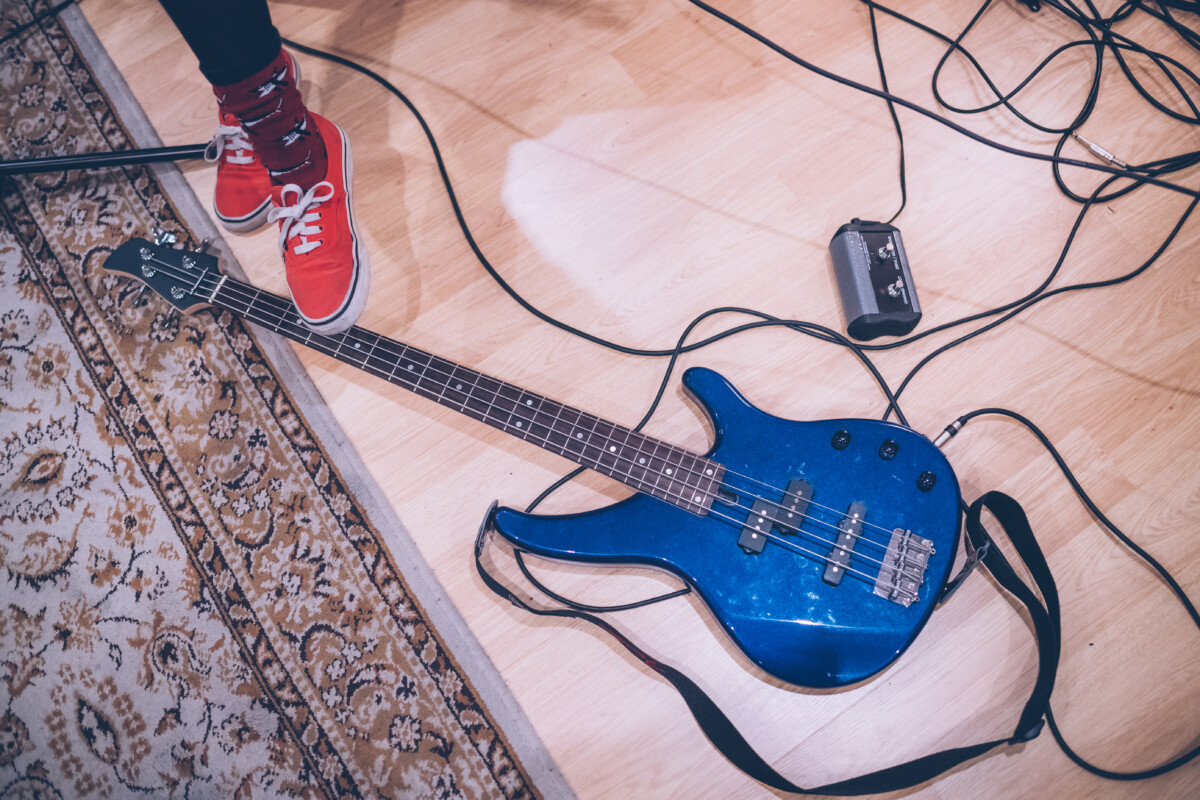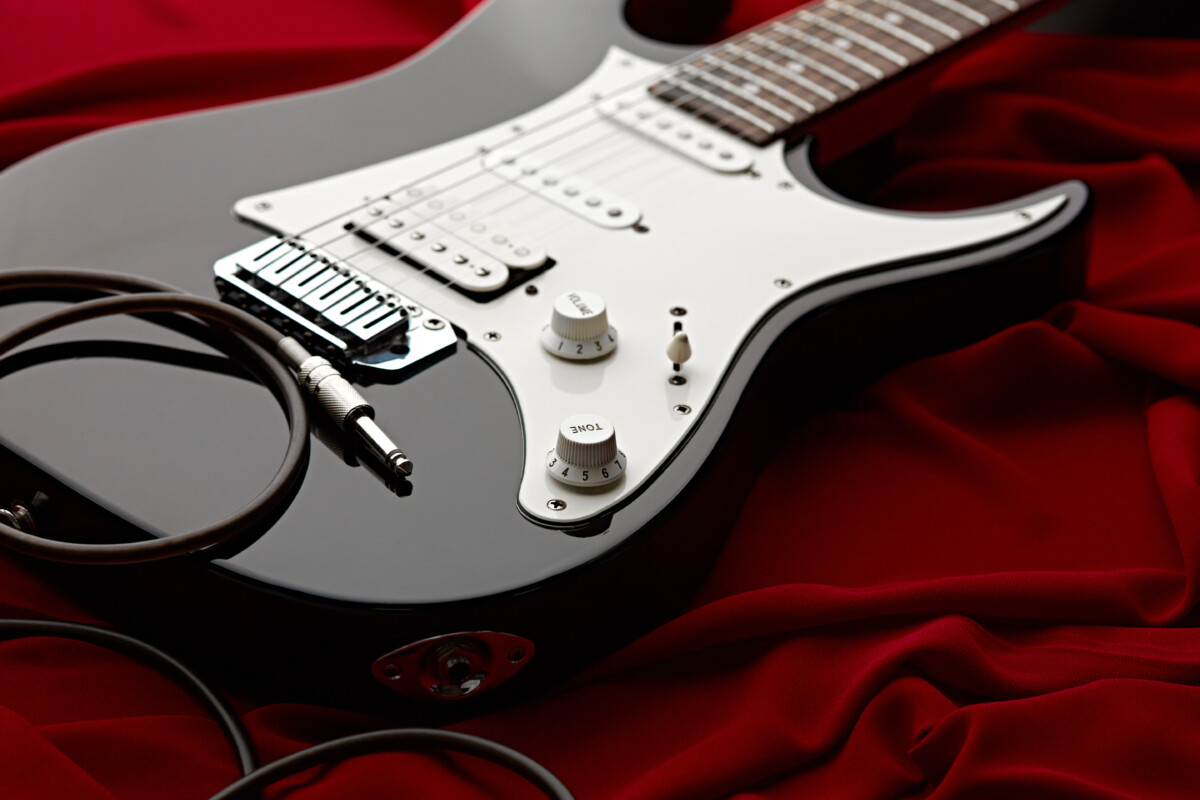Knowing that the humidity level of the air in the place where the guitar is stored might make a difference, you might be wondering if you need to use a humidifier.
When it comes to acoustic guitars, they do need to be regularly humidified to keep the wood in a good condition, but is this the case with electric guitars? Do electric guitars need humidifiers? In this article, we give you an answer to this question and more details, so continue reading.
Key Takeaways
- While acoustic guitars need humidifiers because of their hollow body shape, the electric ones do not.
- Low humidity can cause wood shrinkage in the fretboard of electric guitars.
- Due to humidity, cracks might appear in the body finish of your electric guitar.
- High levels of humidity might harm the electrical components of the electric guitar.
- To better humidify your electric guitar you will need a hardshell case.
- Semi-hollow electric guitars don’t need humidifiers as well.
Table of Contents
Do electric guitars need humidifiers?

The simple answer to this question is that it is not as necessary as it would be with acoustic guitars. So if you don’t use a humidifier for your electric guitar, it is not the end of the world and it’s not such a big concern.
What makes the difference here is the shape of the guitar. Acoustic guitars are made of a body that is hollow, so because of this they are more prone to wood shrinking (when the air humidity is low) or swelling (when the air humidity is high), both of which are bad for the guitar.
On the other hand, electric guitars are made of a body that’s more solid which is thick and isn’t so prone to the problems mentioned above. Mainly because of this, acoustic guitars need humidifiers way more than electric ones.
How does humidity affect electric guitars?
Despite having a solid body, electric guitars can also suffer from wood shrinkage. This doesn’t happen to the same extent as in acoustic guitars, but it still happens.
The place where you might notice wood shrinkage in electric guitars most commonly is the fretboard. If the electric guitar is stored in a low-humidity environment, there might appear sharp fret ends or so-called fret sprouts.
The sharp ends of the frets appear because the wooden neck of the guitar starts shrinking, and this is because the air is dry. Playing with sharp ends hanging will be uneasy so there are some techniques you can use to fix this problem such as sanding for example.
If you use a humidifier to keep the storage place more humid, you might prevent this and slow the process of wood shrinking. But you should also keep in mind that over time fretboards will still shrink in dry climates.
Something else that might appear on electric guitars due to humidity is cracks in the body finish. This depends mostly on what kind of a finish it is and how thick. Somebody finishes are thicker, hence more resistant, while others are lighter and more prone to damage.
To keep the body finish of your electric guitar looking good and prevent cracks, you might want to consider using a humidifier.
The humidity levels, whether they are low or high, can also affect the tone or the tuning stability of your electric guitar. But this isn’t to a big extent, so the necessity for a humidifier is also not huge.
Can humidifiers be bad for your electric guitar?
Yes, if you overdo it, it can cause more harm than good to your electric guitar. This is because too much humidity is bad for electric guitars.
High levels of humidity in the air might not be bad for the wooden parts of the electric guitar, but it can be damaging to the electrical components. The humidity might ruin and cause corrosion to the metal parts.
When the electrical parts get rusty, there might be problems with the guitar’s tone sounding wrong and less clarity in the guitar’s pickups. Sometimes when this happens, you can save these parts, but usually, they need to be replaced.
How can you humidify your electric guitar?
As electric guitars don’t consist of a sound hole where you could put a humidifier as the acoustic guitars, the process is different. This means that to be able to humidify your electric guitar at a constant level you will need to put it in a case.
For humidification, you will need a hardshell case. This is because hardshell cases can help to keep the humidity to the guitar, unlike softshell cases which are good for carrying your guitar to different places, but not so good for humidification.
Most guitar players only have a gig bag which is not really useful for humidification. But as it is not very necessary, you shouldn’t worry too much about getting a hardshell guitar case right away only for the sake of humidification.
Do semi-hollow electric guitars need humidifiers?

Electric guitars that consist of a semi-hollow body shape usually don’t need humidifiers as well. They are made in a way that only some parts of the body are hollowed out to allow some airflow.
This means that the hollow parts don’t cause a huge change when it comes to the damage that can be caused by low or high humidity levels in the air. Because of this, it is not so necessary to humidify even your semi-hollow electric guitar, but you should still try to keep it in a neutral environment for more protection.
Final thoughts
In conclusion, it is not necessary for electric guitars to be humidified. Low humidity can make your fretboard shrink, but you can always repair the sharp ends of the fret either by yourself or by taking your guitar to the tech.
Damage done to the body finish is rare if the body finish is thick and lasting, so you don’t need to worry about humidifying your guitar for this.
While these things are fixable, it is more important to preserve the electrical components and pickups of the electric guitar in a good condition because they are needed for the guitar to provide proper sounds.
So even if you decide to humidify your electric guitar from time to time you should pay attention to not overdo it in order to avoid corrosion.

